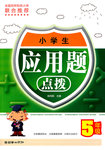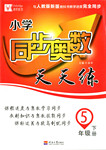题目内容
—Oh,life is so boring!?
—Please don’t think so.I suppose you’ve come to the point _________ a change is needed.?
A.where B.when C.which D.as ?
A?
解析:
句中point意为“特定的情况或地方”,关系副词where引导定语从句修饰point。

 应用题点拨系列答案
应用题点拨系列答案 状元及第系列答案
状元及第系列答案 同步奥数系列答案
同步奥数系列答案On September 22, 1986, Jay Brunkella, a police-officer in the Rogers Park district in Chicago, was shot during a drug arrest and died. Shortly afterwards, fellow officer Ken Knapcik, a 20-year veteran (老警官) of the force, returned home after work to find a note from his 15-year-old daughter on the dining table.
Dad---This poem came directly from my heart. I love you so much! It scares and amazes me that you go out every day and risk everything to provide us with all that we have. I wrote this to express how much I love you and how much lost I’d be without you-Laura. P.S.: Hey, let’s be careful out there.
Titled “The Ultimate Cop”, Laura’s poem was dedicated “To all the cops in the world who have daughters who love them with all their hearts. And especially to my dad.” It was about a police-officer’s daughter who sees on the night time news that her father has been shot. Part of poem: “Daddy, my Daddy, can you hear me cry? Oh, God, I need my Daddy, please don’t let him die.”
Ken Knapcik stood alone as he read the poem. “It took me several minutes,” he said. “I’d get through part of it and have to stop before I could go on. I was weeping. She had never told me she was scared.” He took the poem to work the next day and showed it to his fellow officers. “I’ve never seen so many grown men cry. Some couldn’t finish it.”
Knapcik keeps Laura’s poem in the pocket of his police jacket. He takes it with him every time he leaves the house for a new shift. “I don’t want to be out there without it.” he said, “I’ll probably carry it with me forever.”
【小题1】Laura wrote the poem ______.
| A.in memory of her father who was shot in the drug arrest |
| B.to show her great sorrow in losing her father |
| C.to show her respect to all the cops who lost their lives |
| D.to tell Officer Ken Knapcik how much she loved him |
| A.Jay Brunkella was shot and died |
| B.they were greatly touched by the poem |
| C.the poem was so sad that they couldn’t hold back their tears |
| D.they thought of their dangerous life |
| A.to treasure her daughter’s love and to value his own life |
| B.to keep it from missing |
| C.because he can’t go out without it |
| D.to mourn over the death of officer Jay Brunkella |
| A.Poem for a cop | B.An officer’s death |
| C.Daughter’s love | D.Love my job, love my daughter |
 camera from the cupboard, show how it took excellent pictures of my fellow shoppers... and when he started to introduce the special features, I interrupted to ask whether I needed to buy a carry-case and a memory card as well.
camera from the cupboard, show how it took excellent pictures of my fellow shoppers... and when he started to introduce the special features, I interrupted to ask whether I needed to buy a carry-case and a memory card as well.